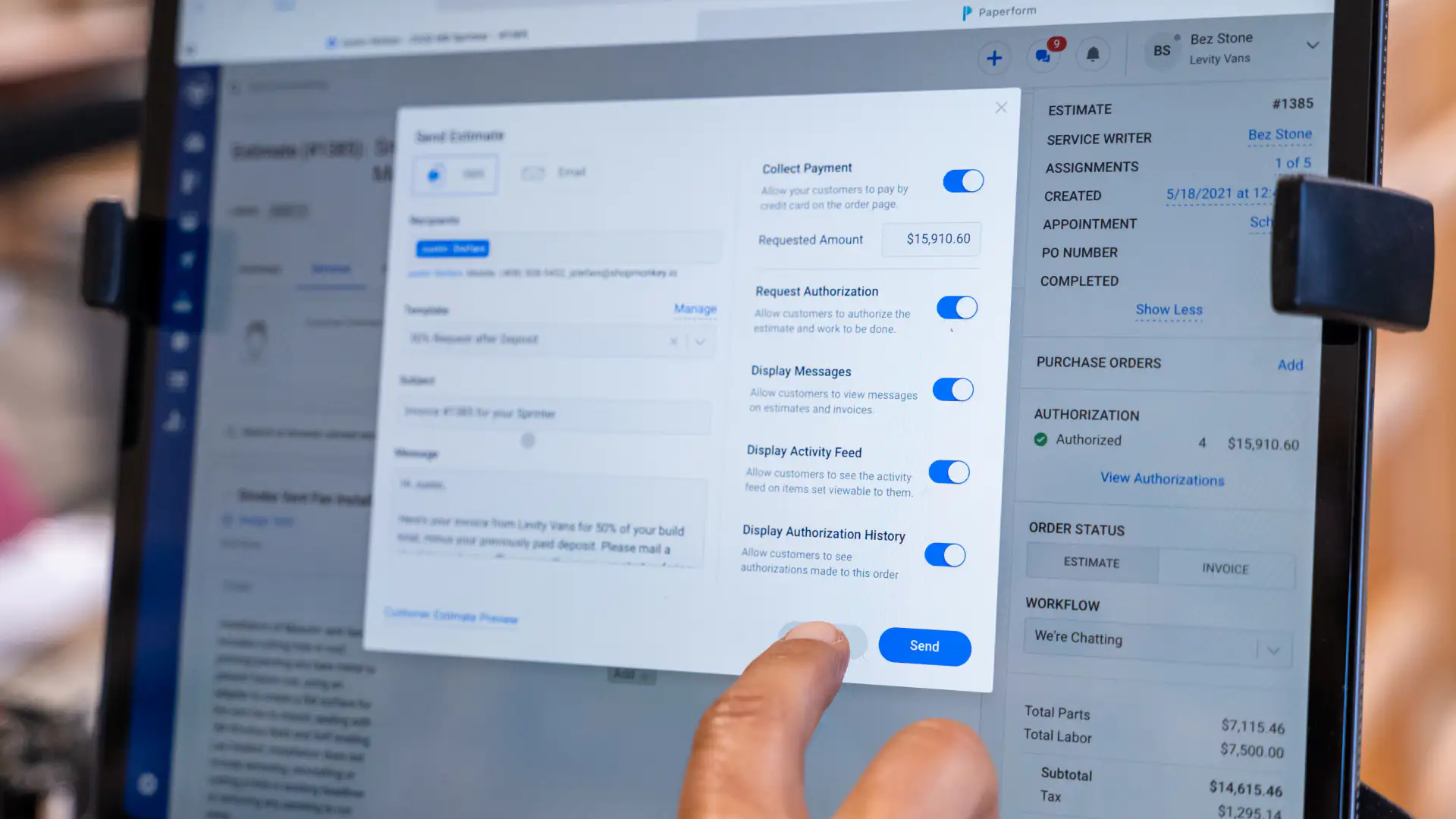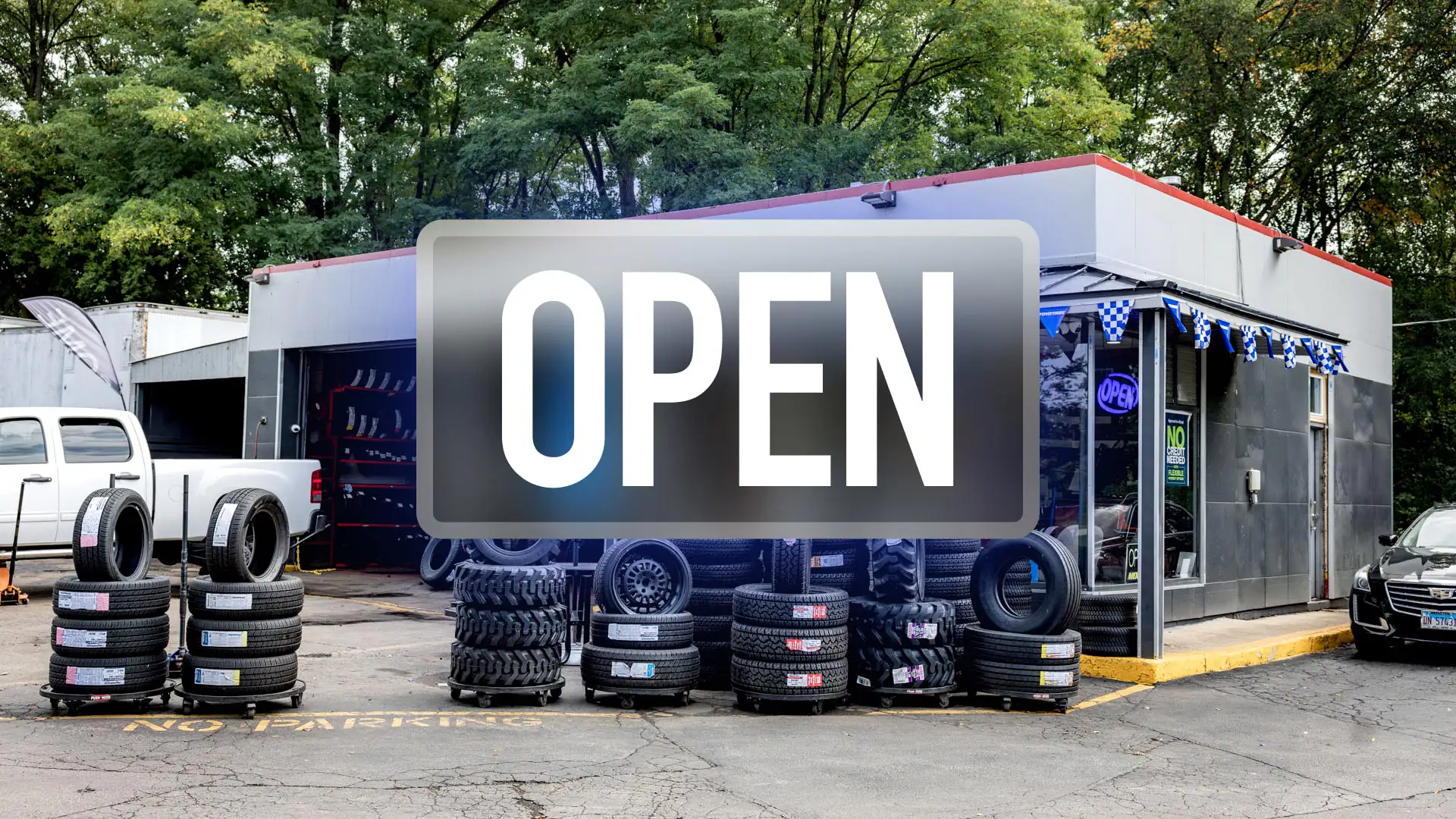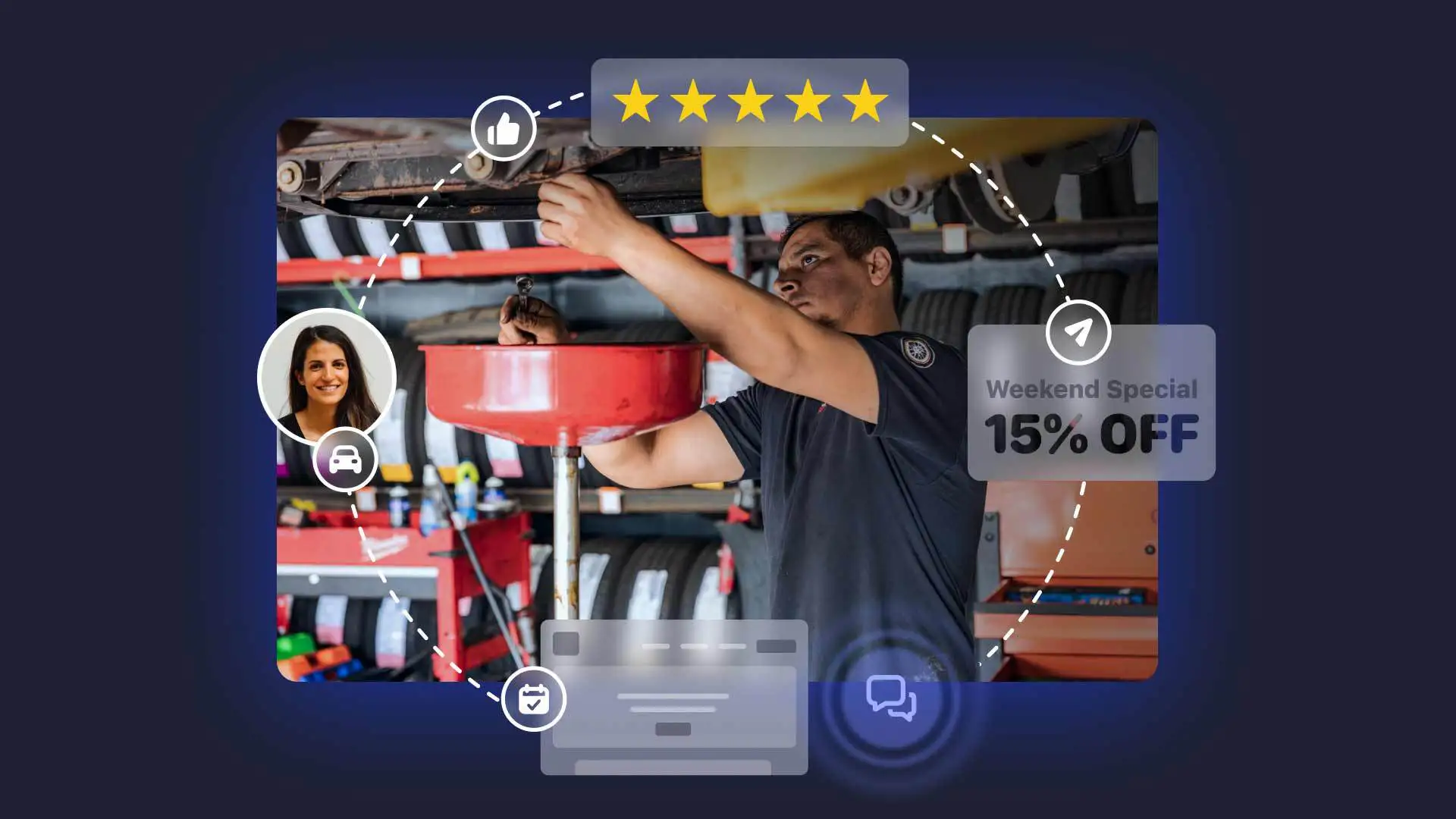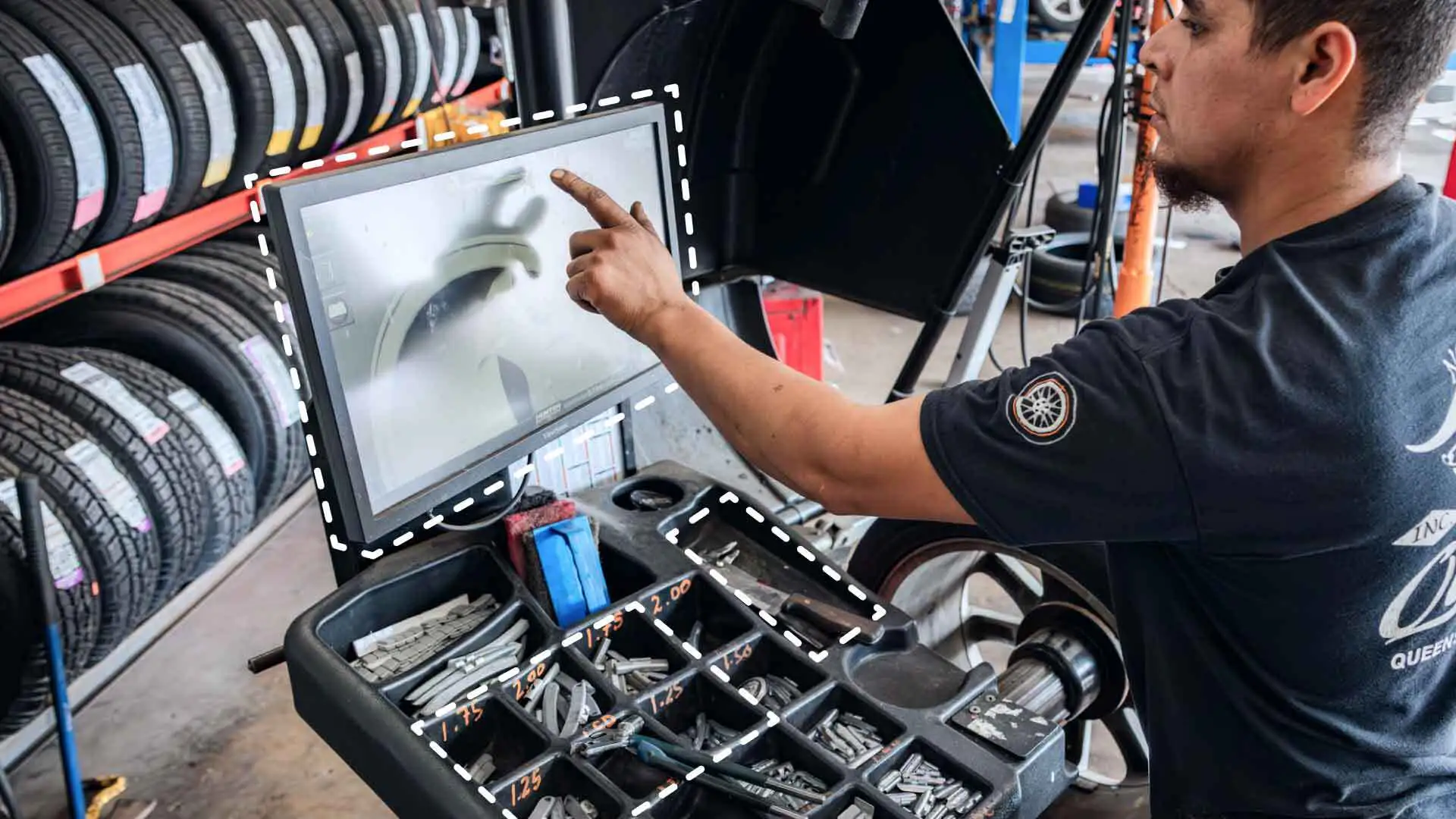Ever catch yourself using the wrong tool for the job? Over the course of my 15 years as a auto technician and service writer, I used to find myself in that situation a lot. I’d continue to loosen a bolt ALL the way out with a wrench, for example, just because I didn’t want to take the time to grab the air ratchet. Then I’d think about it for a minute, and realize I would have been far better off taking 10 seconds to grab the air tool.
We all do this in some way in life: making things harder for ourselves because we haven’t given a better option enough thought, or we underestimate how a little extra time in the near-term will save a huge amount of time in the long-term.
Another example is auto repair shops using paper-based processes even though there are digital options available. At Shopmonkey, I talk to many shop owners, and many avoid switching from paper because their paper-based process is all they know and change is intimidating, while others simply feel they don’t have the time to make the switch. But as a former service writer, avoiding paperless is detrimental to profitability.
The case for getting your auto shop off of paper
1. In a fast-paced environment with high volume and impatient customers, paper slows down business.
I ran an auto shop in the Seattle area for three years, and we operated predominantly off of paper-based work orders, estimates, and invoices — I know firsthand that it’s tedious. Wasting time walking the shop to find a work order to verify information or update a note drove me crazy. Write, handoff, chase paper, write, rewrite — each one of these steps took time, when it could have all been done from my computer if we had been running the business with Shopmonkey's shop management software.
Today, the pace we worked at wouldn’t cut it for most shops. Whether it’s an influx of used cars to be repaired in the wake of high prices and a challenging economy, or simply the on-demand expectations of many customers — auto shops today need to move quickly. Otherwise, customer retention is likely to suffer.
2. Record keeping is tedious but necessary as state legal requirements grow and to protect yourself in the event of a customer dispute.
To maintain compliance with state-by-state regulations, shop-owners are required to keep certain records. It’s also important to have a solid audit trail to protect your shop if a customer tries to dispute a payment for work you’ve already done. At the first shop I worked at, we actually rented out an entire storage unit for boxes of customer invoices, statements and vendor invoices. It was costly, and heaven forbid we ever needed to access a record, it was painstaking to sift through all of those files.
Today, digital databases can house every work order, estimate, and invoice a shop has ever billed, searchable in seconds — anytime, anywhere — making proof compliance and disputes easier to handle.
In addition, having an easily accessible history is also a benefit to your customers — making it easy to look up their history to help determine if they’re due for maintenance, or if you need to address a potential warranty repair.
3. When the market changes outpace your reporting, you can’t make smart business decisions.
When I first started in the shop, the fastest we ever got financial reporting was six weeks. That was the lag time for our accountant to compile and send over the prior months profit and loss statement. The problem was, if we had a financial issue with our parts profit margins or another area of the business, almost two months had passed before we knew about it. That’s a huge amount of missed profit.
In the face of things like inflation and supply chain issues, six weeks is too long to go without visibility into your shop’s finances. Today’s ever-changing business conditions require real-time reporting to keep your business in the black. You have GOT to be able dive in on a daily basis, and get instant reporting on metrics such as parts profitability and effective labor rates to ensure you're not bleeding cash. If the process is too slow, by the time the report comes back from the bookkeepers, you've already lost tons of money. Without real-time reports, running your shop is like trying to win the Indy 500 with your car’s speedometer reading from 10 laps back.
4. In a hyper-competitive employment landscape, paper loses top talent.
An auto technician research report by WrenchWay found that 29% of auto technicians consider the work environment to be the biggest factor that makes them stay at or leave a shop — second only to compensation.*
The bonus perk to getting the shop onto a software platform is the tools you can give technicians to help them have a satisfying work environment where they feel empowered to do their job well instead of frustrated and slowed down by paper-based processes. From scheduling, to digital vehicle inspections, to estimate creation, labor guides, and more — all these processes are simply faster and easier when they are not done on paper.
As an auto shop employee, I dreaded when a customer would call to reschedule, because it meant I had to go scrambling for a white out pen to clear out their spot on our paper calendar, and then rewrite the appointment. It made for a messy, confusing and hard to read calendar that had its fair share of mistakes because it was so hard to keep it updated. It frustrated customers and caused me a lot of stress that could have been eliminated if I had been given the right, modern tools.
Ready to try out a truly paperless solution for running your shop? Reach out and set up a demo with our team at Shopmonkey. We’ll review your current process, and highlight specific areas where Shopmonkey can improve your workflow and bring you profit at the end of the day.





